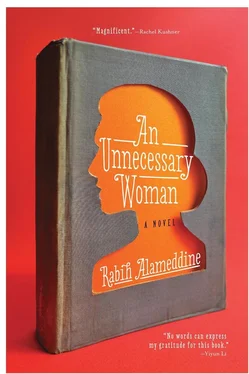Let the people flagellate themselves into a frenzy of remembrance. Wails, whips, blood: the betrayal of Hussein moves me not.
Let the masses cover themselves in gold, frankincense, and Chanel to honor their savior’s birth. Trivia matters naught to me.
Beginnings are pregnant with possibilities. As much as I enjoy finishing a translation, it is this time that tickles my marrow most. The ritual of preparation: setting aside the two versions of the book of choice — one English, the other French — the papers, the notebook that’s to be filled with actual notes, the 2B graphite pencils with the sharpener and Pearl eraser, the pens. Cleaning the reading room: dusting the side table, vacuuming the curtains and the ancient armchair, navy chenille with knotted fringes hanging off its arms. On the day of genesis, the first of January, I begin the morning with a ceremonial bath, a rite of scrubbing and cleansing, after which I light two candles for Walter Benjamin.
Let there be light, I say.
Yes, I am a tad obsessive. For a nonreligious woman, this is my faith.
This year, though, for the first time in quite a while, I’m not certain about the book I want to work with. This year, for the first time ever, I might have to begin a translation while having blue hair. Aiiee.
I’ve decided on Roberto Bolaño’s unfinished novel 2666 , but I’m nurturing doubts. At more than nine hundred pages in both versions, it is no small feat, or no short feat. It will take me at least two years. Should I be taking on such a long-term project? Should I be making accommodations for my age? I’m not talking about dying. I am in good health, and women in my family live long. My mother is still going insane.
Let’s put it this way: I don’t hesitate when buying green bananas, but I’m slowing down. 2666 is a big project. The Savage Detectives required nineteen months, and I believe my work rate isn’t what it was then. So I balk.
Yes, I’m healthy, I have to keep reminding myself. During my biannual checkup earlier this week, my doctor insisted that I was in sturdy health, like iron. He’s right, of course, and I’m grateful, but what he should have compared me to was rusty iron. I feel oxidized. What was it that Yourcenar, as Hadrian, wrote about physicians? “A man does not practice medicine for more than thirty years without some falsehood.” My doctor has been practicing for longer than that. We’ve grown old together. He told me that my heart is in good shape, talked to me with his face hidden behind a computer printout of my lab results. Even I, a Luddite, haven’t seen such archaic perforated printouts in years. His mobile phone, a BlackBerry lying on the desk next to his left elbow, was definitely the latest model, which should count for something. I do not own one. But then, I have no need for a phone, let alone a smart one; no one calls me.
Please, no pity or insincere compassion. I’m not suggesting that I feel sorry for myself because no one calls me or, worse, that you should feel sorry. No one calls me. That’s a fact.
I am alone.
It is a choice I’ve made, yet it is also a choice made with few other options available. Beiruti society wasn’t fond of divorced, childless women in those days.
Still, I made my bed — a simple, comfortable, and adequate bed, I might add.
I was fourteen when I began my first translation, twenty dull pages from a science textbook. It was the year I fell in love with Arabic — not the oral dialect, mind you, but the classical language. I’d studied it since I was a child, of course, as early as I’d studied English or French. Yet only in Arabic class were we constantly told that we could not master this most difficult of languages, that no matter how much we studied and practiced, we could not possibly hope to write as well as al-Mutanabbi or, heaven forbid, the apex of the language, the Quran itself. Teachers indoctrinated students, just as they had been indoctrinated when younger. None of us can rise above being a failure as an Arab, our original sin.
I’d read the Quran and memorized large chunks of it, but all that studying didn’t introduce me to the language’s magic — forced learning and magic are congenital adversaries.
I was seven when I took my first Quranic class. The teacher — a wide, bespectacled stutterer — would lose her stutter when she recited the Quran; a true miracle, the other teachers claimed. She had it all committed to memory, and when she recited, her eyes glowed, her scarf-covered head swayed on a shaky neck, and her pointing stick twirled before her. In the first row we covered our eyes whenever the pointer came too close — to this day, when I sit in the front seat of a car during a rainstorm, I’m afraid the windshield wipers might poke my eye. The teacher’s stick may have appeared dangerous, but it was not what she beat us with. If we made a mistake in reciting, if a girl forgot a word or had trouble recalling a line, the teacher’s cheeks contracted and glowed, her lips pursed and shrank; she’d ask the child to come to the front and extend her hand, and would mete out punishment using the most innocuous of implements, the blackboard eraser. It hurt as much as any inquisitor’s tool.
As if forced memorization of the Quran — forced memorization of anything — wasn’t punishment enough.
“Listen to the words,” she exhorted, “listen to the wizardry. Hear the rhythm, hear the poetry.”
How could I hear anything when I was either in excruciating pain or fearing that I might soon be?
“The language of the Quran is its miracle,” she used to say.
Consider this: In order to elevate the Prophet Moses above all men, God granted him the miracle that would dazzle the people of his era. In those days, magicians were ubiquitous in Egypt, so all of Moses’s miracles involved the most imaginative of magic: rod into serpent, river into red blood, Red Sea into parting. During the Prophet Jesus’s time, medicine was king. Jesus healed lepers and raised the dead. During our Prophet’s time, poetry was admired, and God gifted Muhammad, an illiterate man, with the miracle of a matchless tongue.
“This is our heritage, our inheritance — this is our magic.”
I didn’t listen then. The teacher frightened faith out of my soul. I didn’t care that the Quran had dozens of words for various bodies of water, that it used rhythms and rhymes that hadn’t been heard before.
Compared to the Quran’s language and its style, those of the other holy books seem childish. It is said that after one glance at the Bible, the Maréchale de Luxembourg exclaimed, “The tone is absolutely frightful! What a pity the Holy Spirit had such poor taste!”
No, I might be able to poke fun at the Quran for its childishly imperious content, but not for its style.
It was finally poetry that opened my eyes; poetry, and not the Quran, that seared itself into the back of my brain — poetry, the lapidary. I’m not sure that the discovery of love is necessarily more exquisite than the discovery of poetry, or more sensuous for that matter.
I recall the poet who ignited the flame, Antara, the jet-black warrior-poet. I remember the shock of a doomed language being resuscitated.
And I remembered you as spears quenched their thirst
In me and white swords dripped with my blood
So I longed to kiss the blades that recalled
The gleam of your smiling mouth to my mind
Then again, maybe it was Imru’ al-Qays. He and Antara are my preferred of the seven included in the legendary Suspended Odes.
But come, my friends, as we stand here mourning, do you see the lightning?
See its glittering, like the flash of two moving hands, amid the thick gathering clouds.
Читать дальше












